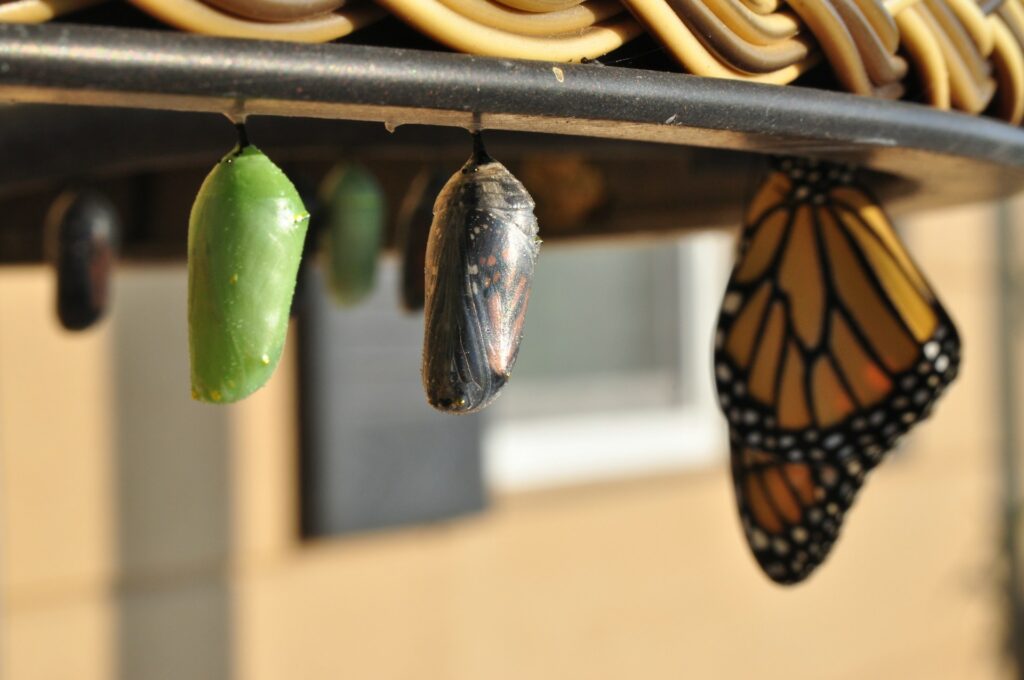Forgive the silly title. We drive looking forward through the windscreen, so to speak, but we need our mirrors to avoid getting hit from behind. Someone once told me the reason the windscreen is bigger than the mirror is that we need to see where we are going more than where we have been.
As an investment adviser for over 30 years, I can affirm that some truths remain constant. However, one of those constants is that the future is different from the past. We do well to remember that just because something made money before does not mean it will always make money. Businesses must evolve, adapt, or die.
Universal Investment Truths
The universal investment truths are like the laws of physics. They exist to interpret the world around us but are applied by humans to real-world observations. We are fallible, so the predicted outcomes are often wrong. But that does not mean we should stop applying the rules or that they are at fault.
The basics of sound investing are likely to be: diversify, rebalance, and remain steady when times are tough. With these basics in mind, what should we be doing going forward?
Probably just that—going forward! Using the car context again, we need to know what might be coming up from behind, but we need to focus more on where we are headed.
What’s in the Rear-View Mirror?
From an investment perspective, history can tell us a lot. In the past, one way to gain wealth was to take it from someone else. Empires rise and fall, but the idea that one country or a small group can simply invade others and plunder is less viable today.
The closest modern analogy might be China building a new empire by investing in the developing world in return for favorable trading conditions and access to resources. However, history reminds us that all empires eventually fall.
History also shows that living standards rise with more trading, not less, and that innovation propels progress faster than anything else. A word of caution echoes from the past: bubbles burst, and conflict can destroy economies.
In my time as an investment adviser, I’ve witnessed:
- Two wars in the Gulf
- An Asian financial crisis
- A Russian economic crisis
- The dot-com bubble
- The banking crisis
- A global pandemic
Through all this, real assets—like property, stocks, and bonds—have provided better long-term returns than cash.
Analyzing Historical Performance
I prefer to examine the last thirty-plus years since January 1990. To avoid skewing results by choosing a particularly good or bad month, we can run the models based on an investment of £100,000 made in any month and track its performance over a cycle of thirty-one years and ten months. This includes the downturn caused by COVID-19.
What does this data tell us? In all cases, investments have outperformed cash deposits, often by a substantial margin. Even in the absolute worst month, investing would have delivered significantly more than any cash deposit over the same timeframe.
Cash deposits are not investments; they should be used to safeguard money you expect to spend rather than to grow your wealth.
Lessons for the Future
The lesson is clear: once invested, hold your nerve and remember not to invest money you might need in the short term. If you don’t need the money now, let it ride out the economic cycles. The adage holds true: you only make a profit when you take it—and the same applies to losses.
Looking Ahead
First, we need to revisit some basic economic principles. The most important one is supply and demand. With greater demand than supply, a business can make a profit and maintain healthy prices. Conversely, when supply exceeds demand, it’s a slow march toward failure.
Therefore, a solid starting point is to invest in businesses likely to endure long-term based on demographic trends, rather than those that are merely fashionable today. So, what are the long-term trends that are easy to see?
- Computers and Artificial Intelligence will continue to change how we operate.
- The proportion of older people in the world will increase.
- The need to reduce reliance on carbon energy will persist.
- Most governments will likely outsource infrastructure investments due to budget constraints.
- We will always need the basics: water, power, transportation, food, and housing.
Most people agree that these trends are likely to continue. It makes sense to invest in businesses that stand to benefit from them while avoiding those exposed to risk due to these changes.
What Doesn’t Change
Do not put all your investment hopes into one asset or strategy. You cannot predict with certainty what will yield the best returns. Spread your investments across those you believe have strong prospects. Diversify among bonds, property, and stocks; mix up your investments across different industries and regions.
Diversify, diversify, and diversify.
Recap
- Remember that cash deposits are not investments and should primarily be used for money you expect to spend, rather than invest. They will not generate the same level of returns as other real assets over the long term.
- Invest in businesses that are likely to benefit from technological and environmental changes, and diversify across asset classes, industries, and geographies.
- Be prepared to rebalance your investments when the time is right, and hold your nerve to ride out economic cycles once you’re invested.
Disclaimer: Please be aware that investments carry varying degrees of risk. Their underlying value can fall as well as rise, and you may not get back the full amount invested.



